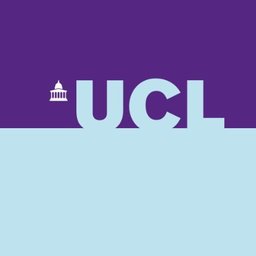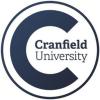Research Fellow In Ai/computational Structural Biology
London, ENG, GB, United Kingdom
Job Description
Ref Number
B02-08858
Professional Expertise
Research and Research Support
Department
School of Life & Medical Sciences (B02)
Location
London
Working Pattern
Full time
Salary
43,374 51,860
Contract Type
Permanent
Working Type
On site
Available for Secondment
No
Closing Date
20-Jun-2025
About us
------------
Biosciences is one of the world's foremost centres for research and teaching in the biological sciences and one of the largest Divisions within UCL, undertaking a significant amount of research and teaching. The Division has a diverse portfolio addressing all areas of biology from protein interactions to cell function, organism development, genetics, population studies and the environment. Computational modelling approaches are frequently used alongside experimental research programmes and much of our research crosses traditional boundaries, including the relationship of biodiversity to the health of the planet. Activity is underpinned by high calibre science technology platforms and state of the art equipment. Educational activity includes a range of undergraduate programmes, an expanding number of Masters Programmes and a substantial number of postgraduate research students.
This is an exciting opportunity to join the Computational Biology Group headed by Professor Christine Orengo. The successful applicant will join a pioneering research effort focussed on developing novel AI-based/ML methods for identifying structure function groups (FunFams) in domain superfamilies and characterising their ligand binding pockets.
About the role
------------------
We are seeking a highly motivated researcher to develop artificial intelligence based novel algorithms and computational workflows to identify domain functional families (FunFams) in the CATH-TED database comprising relatives with highly similar structures and functions. This will also involve building workflows to map all available ligand data from ChEMBL and other public sources to these FunFams and to capture characteristics of the binding pockets in the family. The project is a collaboration with the groups of David Jones, also at UCL and Sameer Velankar who manages the PDBe-KB at the EBI. Workflows will also be developed to annotate protein structures in the PDBE-KB and AFDB with domain family information and information on binding pocket characteristics.
The researcher would be expected to have knowledge of protein structure, protein ligand binding, machine learning and expertise in workflow development. Information generated by the project will be widely disseminated via the TED, PDBeKB and AFDB websites.
This post will be based in the lab of Professor Christine Orengo at UCL.
This role is an open-ended contract with a funding end date of 14/08/2026 in the first instance.
Research Fellows -
'Appointment at Grade 7 is dependent upon having been awarded a PhD; if this is not the case, initial appointment will be at Grade 6B (salary 37,332 - 39,980 per annum) with payment at Grade 7 being backdated to the date of final submission of the PhD Thesis.This appointment is subject to UCL Terms and Conditions of Service for Research and Professional Services Staff. Please visit https://www.ucl.ac.uk/human-resources/conditions-service-research-teaching-and-professional-services-staff for more information.
A job description and person specification can be accessed at the bottom of this page.
If you have any queries about the role, please contact Professor Christine Orengo, c.orengo@ucl.ac.uk.
If you need reasonable adjustments or a more accessible format to apply for this job online or have any queries about the application process, please contact Biosciences staffing at biosciences.staffing@ucl.ac.uk.
About you
-------------
You must have a PhD in bioinformatics, biosciences, computational biology, computer science, data science or a related subject area and proven knowledge of python programming, developing machine learning/AI based tools and HPC.
You will be expected to work as part of a tightly integrated team of computational biologists to produce novel algorithms and workflows to classify domain functional families and characterise their binding pockets.
In addition to developing and conducting the research, you will contribute expertise to the overall research effort in the Orengo group. You will also communicate results as scientific papers in leading journals, and as scientific presentations at national and international conferences.
What we offer
-----------------
As well as the exciting opportunities this role presents, we also offer some great benefits some of which are below:
41 Days holiday (27 days annual leave, 8 bank holidays and 6 closure days) Additional 5 days' annual leave purchase scheme Defined benefit career average revalued earnings pension scheme (CARE) Cycle to work scheme and season ticket loan Immigration loan Relocation scheme for certain posts On-Site nursery On-site gym Enhanced maternity, paternity and adoption pay Employee assistance programme: Staff Support Service Discounted medical insurance
Visit https://www.ucl.ac.uk/work-at-ucl/reward-and-benefits to find out more.
Our commitment to Equality, Diversity and Inclusion
-------------------------------------------------------
As London's Global University, we know diversity fosters creativity and innovation, and we want our community to represent the diversity of the world's talent. We are committed to equality of opportunity, to being fair and inclusive, and to being a place where we all belong.
We therefore particularly encourage applications from candidates who are likely to be underrepresented in UCL's workforce.
These include people from Black, Asian and ethnic minority backgrounds; disabled people; LGBTQI+ people; and for our Grade 9 and 10 roles, women.
Our department holds an Athena SWAN Bronze award, in recognition of our commitment to advancing gender equality.
You can read more about our commitment to Equality, Diversity and Inclusion here: https://www.ucl.ac.uk/equality-diversity-inclusion/
Beware of fraud agents! do not pay money to get a job
MNCJobs.co.uk will not be responsible for any payment made to a third-party. All Terms of Use are applicable.
Job Detail
-
Job IdJD3187631
-
IndustryNot mentioned
-
Total Positions1
-
Job Type:Full Time
-
Salary:Not mentioned
-
Employment StatusPermanent
-
Job LocationLondon, ENG, GB, United Kingdom
-
EducationNot mentioned



